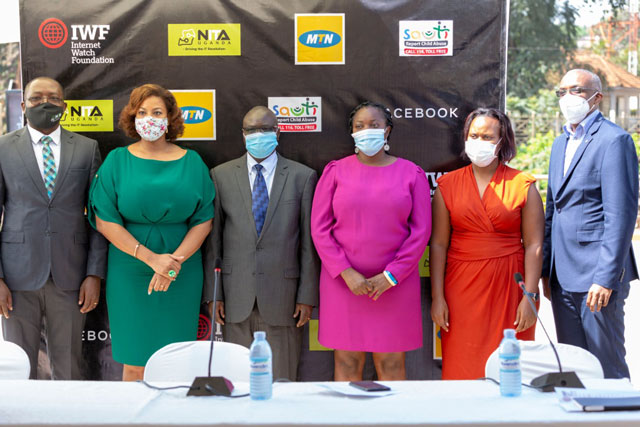
Kampala, Uganda | THE INDEPENDENT | Julius Businge | As coronavirus pandemic continues to drive people to work and socialise via online platforms, a new campaign is being implemented urging people to report online child sexual abuse material.
Dubbed Help Children Be Children, the campaign, which is led by the Internet Watch Foundation (IWF), is calling on the public to report any child sexual abuse content they stumble across online to a designated reporting portal at www.stopit.ug.
Those behind the campaign say, it started on Feb.01 and will help make Uganda a safer place to go online and to stamp out the spread of child sexual abuse material on the internet.
The campaign is being supported by two firms – Facebook and MTN.
It is being manned by IWF, a UK-based international charity responsible for finding and removing images and videos of child sexual abuse from the internet.
Once reported through the portal, images and videos will be assessed by trained IWF analysts in the UK, and if found to contain child sexual abuse, they will be blocked or removed from the internet.
The portal is run in partnership with Ugandan and international bodies including the National Information Technology Authority (NITA), National Computer Emergency Response Team of Uganda (CERT.UG), Internet Society Uganda Chapter, and the Ministry of Internal Affairs.
The Executive Director at the National Information Technology Authority Uganda, Hatwib Mugasa, said children are the future and as such their well-being is important to society.
“We are proud to join international efforts to create a safer world for our children through the Internet Watch Foundation,” Mugasa said.
He urges everyone to join this noble cause.
ICT experts are optimistic the campaign will yield results since a lot has already been achieved previously. For instance, in 2020 IWF analysts processed 299,600 reports which included tip-offs from members of the public. This is up from 260,400 reports in 2019 – representing an increase of 15%.
Of these reports, 153,350 were confirmed as containing images and/or videos of children being sexually abused. This compares to 132,700 in 2019 – an increase of 16%.
Of these, 68,000 reports were tagged as including “self-generated” child sexual abuse content – a 77% increase on 2019’s total of 38,400 reports.
Self-generated content can include child sexual abuse content that has been created using webcams, very often in the child’s own room, and then shared online.
The Chief Executive Officer of IWF, Susie Hargreaves OBE, said the campaign comes at a “vital and pivotal moment” in making the internet a safer place world over.
“Though there are people who want to exploit the internet and use it to abuse the most vulnerable, we know there are people who want to help and who will be vigilant against the spread of online child sexual abuse material,” she said.
 The Independent Uganda: You get the Truth we Pay the Price
The Independent Uganda: You get the Truth we Pay the Price



